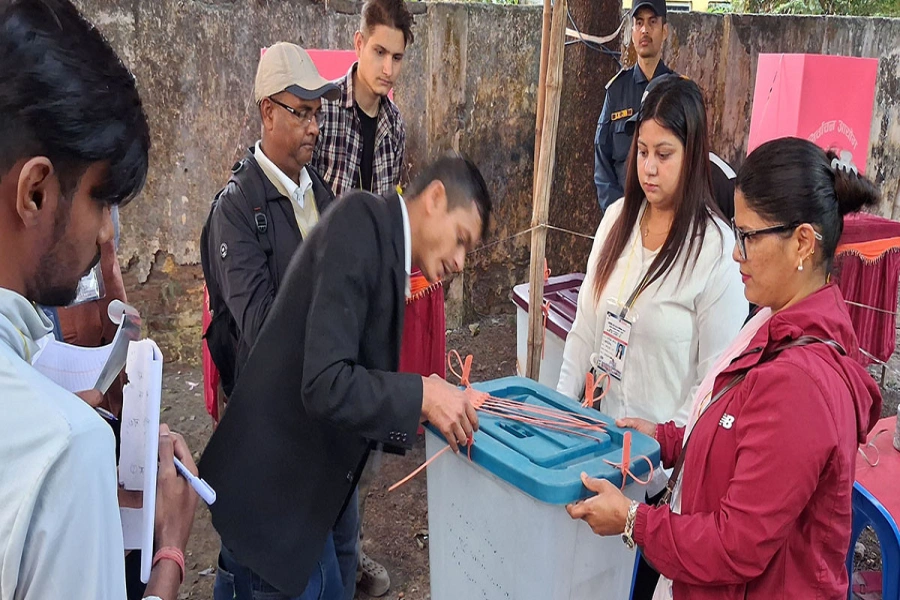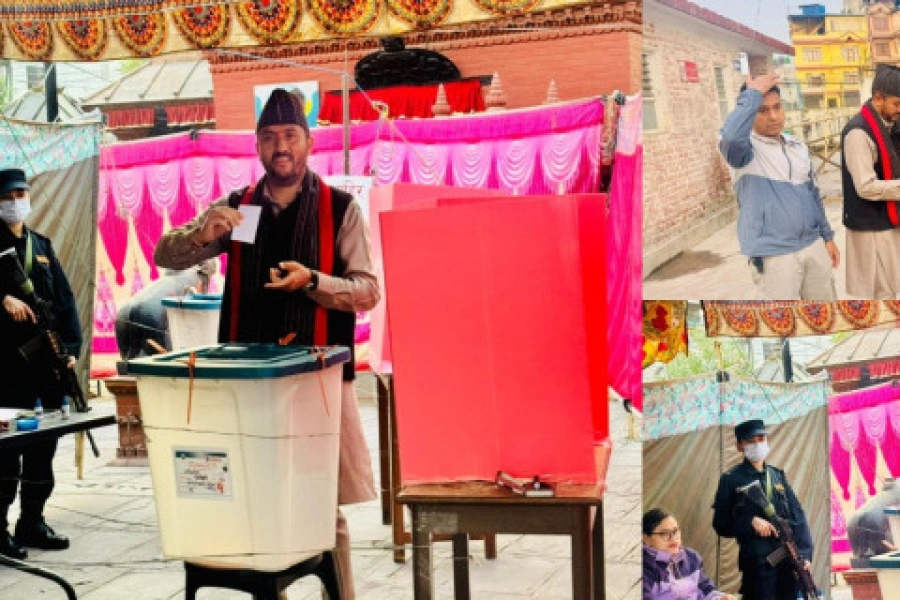KATHMANDU, Feb 10: Breastfeeding support services throughout Nepal have been suspended due to a stop-work order issued by the United States for foreign aid and development programs.
The services, funded by the US Agency for International Development and administered by the Nepali government, were key to ensuring the lives and health of infants in the country, where nearly 50,000 babies under the age of 1 die every year.
“The program was expected to reduce the infant mortality rate and the number of malnourished children in Nepal, but [it] has now been suspended,” says Lila Bikram Thapa, chief nutrition officer of the nutrition section under Nepal’s Department of Health Services.
The breastfeeding support services were part of the Integrated Nutrition Program, a five-year initiative that began in January. Most of the program’s budget — 72 million US dollars — was to be used in the health sector, but it also included funding for food production and safety, all aimed at reducing malnutrition. A third of the funding — 25 million dollars — has already been deposited into Nepal’s state treasury. Even so, all work stopped immediately, based on a directive outlined in a Jan. 20 executive order issued by the administration of US President Donald Trump.
USAID was apparently shut down on Monday, when all workers at the US government department were told that they should not report to work, and their email accounts were closed.
The Integrated Nutrition Program isn’t the only project for which suspension could severely and negatively affect infants in Nepal. A similar project, which began in August last year, appointed breastfeeding-counseling nurses in 18 hospitals across the nation. The government was planning a similar campaign at the local level to fight malnutrition in babies. All of these programs came to a halt after the funding pause.
Musk brands USAID 'criminal', Trump calls its leaders 'radical...

“This will directly affect mothers and children during the golden thousand days,” says Kumari Bhattarai, a senior community nursing officer at Nepal’s Department of Health Services, referring to the first three years of a child’s life.
The stop-work order, called by the US government a 90-day “funding pause,” will have long-term adverse effects, Thapa says.
“We [were] expecting to meet the targets for eliminating the morbidity and mortality associated with malnutrition, which can create direct human loss,” Thapa says.
Instead, the prevalence of infant malnutrition will likely rise, health workers told Global Press Journal.
Breastfeeding support and awareness is especially important in Nepal, where the percentage of exclusively breastfed babies younger than 6 months old has dropped from 66% in 2016 to just under 56% in 2022, according to a Nepal Demographic Health Survey. More than a third of all children are too short for their age due to malnutrition.
Breastfeeding is a powerful tool that, according to study after study, prevents malnutrition and many of its lifelong effects, which include poor cognition and even low wages as an adult. And it’s a proven lifesaver: In low- and middle-income countries, infants that are not breastfed are six to 10 times more likely to die in the earliest months of life.
The Trump administration’s Jan. 20 executive order stated that “the United States foreign aid industry and bureaucracy are not aligned with American interests and in many cases antithetical to American values.” The stop-work order directed USAID to pause all funding to its implementing partners, as well as to stop implementation of USAID-funded programs. US foreign aid amounts to about 70 billion dollars — just 1% of the country’s federal budget.
Worldwide, programs that provided HIV/AIDS medicines, food for starving people, mosquito nets to help prevent malaria, tuberculosis treatment and more ended without warning.
Though the stop-work order is temporary, it’s not clear which programs, if any, will see funding restored in the long term.
USAID’s official website is down, and USAID and the White House press office did not answer Global Press Journal’s requests for information.
The Trump administration’s Jan. 20 executive order stated that “the United States foreign aid industry and bureaucracy are not aligned with American interests and in many cases antithetical to American values.” The stop-work order directed USAID to pause all funding to its implementing partners, as well as to stop implementation of USAID-funded programs. US foreign aid amounts to about 70 billion dollars — just 1% of the country’s federal budget.
Worldwide, programs that provided HIV/AIDS medicines, food for starving people, mosquito nets to help prevent malaria, tuberculosis treatment and more ended without warning.
Though the stop-work order is temporary, it’s not clear which programs, if any, will see funding restored in the long term.
USAID’s official website is down, and USAID and the White House press office did not answer Global Press Journal’s requests for information.
This story was originally published by Global Press Journal.










_20231204074227.jpg)



























